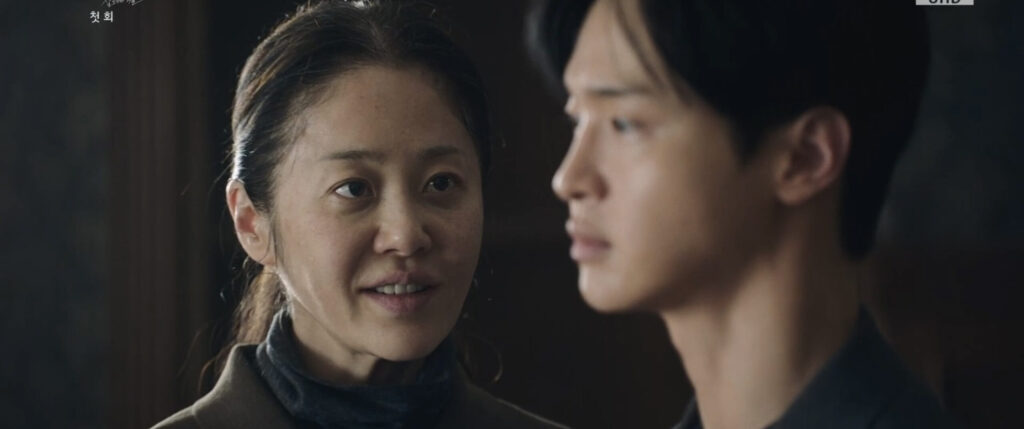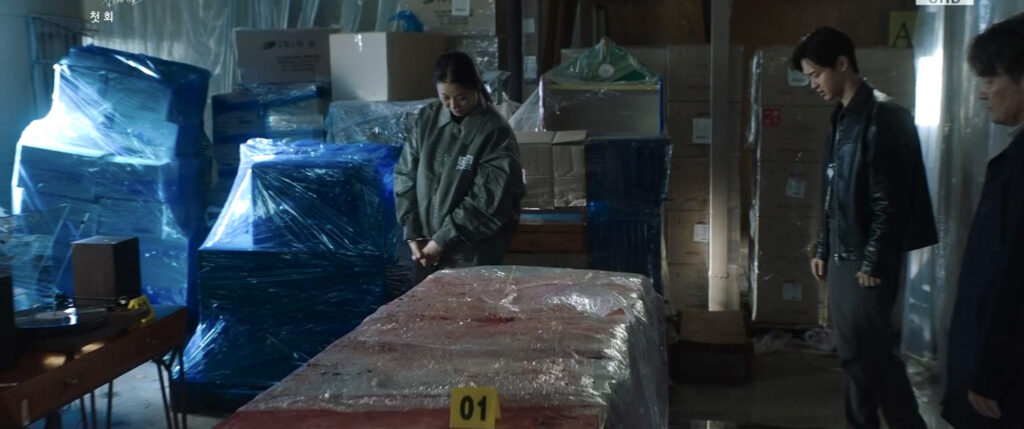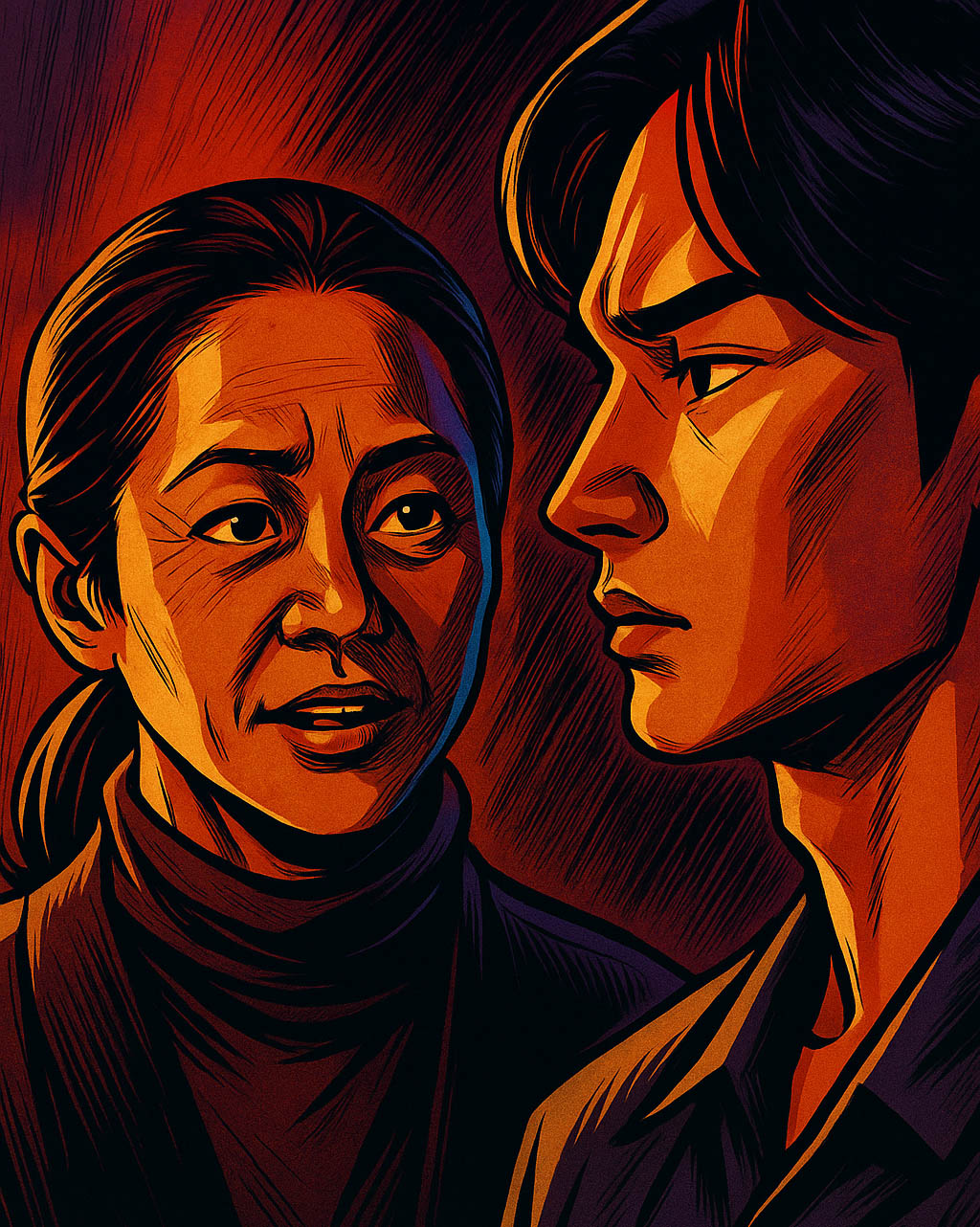Right away: if you like your crime shows messy, clever, and the sort that makes you squirm in your seat while yelling at the TV, Queen Mantis is coming for your chill. Episodes 1 and 2 set a grim, precise tone. There’s blood, brains (literally), and a mother–son dynamic that’s both hypnotic and deeply uncomfortable. Yet somehow, the show still finds room for smart plotting and small human beats that keep you invested.
Below: a tight but full breakdown, what’s working, where the story might trip, a few theories, and my blunt take on why you should (or shouldn’t) keep watching.

TL;DR Pointers
- Grim Start: The show opens with a gruesome copycat murder mirroring a notorious serial killer, “The Mantis.”
- Dysfunctional Duo: The original Mantis offers to help the police, but only if she can work with her estranged son, a detective.
- Strong Points: The series is praised for its tense atmosphere, deliberate pacing, magnetic performances, and its willingness to explore moral ambiguity.
- Key Themes: It delves into themes of control, vengeance, and the complex, damaging nature of family ties.
- Warning: It’s a psychological slow-burn with graphic violence, not a light watch.
Quick snapshot — what happens in Episodes 1–2

The series opens on a riverbank crime scene that’s gruesome and specific. Detective Kim Na-hee finds a body marked by strangulation, injection wounds, and a horrific mutilation: a severed tongue shoved into the victim’s backside. Charming. The method matches the old casefile for a notorious serial killer called the Mantis — a woman who targeted abusers. That’s where things get sticky.
Meanwhile, the original Mantis — Jung Yi-shin — is alive and very much a presence. She’s been in prison for years, crafting letters and drawing in the quiet of her cell. In an almost theatrical voice, she watches news reports and, naturally, enjoys the attention. Soon, the police realize this new killing may be a copycat. Consequently, Yi-shin offers to help. However, she’ll only cooperate if her son, Cha Soo-yeol, joins the investigation. Drama ensues.
Soo-yeol grew up abandoned, but he became a cop. He’s competent, sharp, and emotionally sticky around anything that smells like his past. He also doesn’t love his mother on sight. Predictably, reuniting them is tense. Yet Yi-shin is magnetic. She toys with investigators. She gives clues. She critiques technique. And she delights in pointing out the macabre details others miss.
The team chases leads to Seo Gu-wan, a disturbed man who idolizes Yi-shin. He’s a loose thread that unravels into a family hostage scenario, a hospital discovery, and a desperate CPR scene that shows Soo-yeol’s fierce drive to save people — or perhaps to redeem his past. Yi-shin, meanwhile, is calmly theatrical: feeding bugs with leaves hidden in her mouth. Yes, that image will stay with you.
Characters you need to know (fast)

- Jung Yi-shin (the Mantis) — Charismatic, unsettling, and impossibly composed. She’s played like a force of nature who relishes control.
- Cha Soo-yeol — The son who grew into a detective. Tough, scarred, and driven. He hates being weak. He also has a moral code, however messy it is.
- Kim Na-hee — A hard-working detective who’s been elbowed out of the leadership slot. Cool under pressure and quietly principled.
- Choi Joong-ho — The superintendent who knows how to push buttons and is willing to use Yi-shin’s brilliance for the case.
- Seo Gu-wan — A tragic, dangerous admirer who blurs the line between fan and criminal.
Why the show grabs you (what’s working)

First, the atmosphere. The series paints every scene with a cold precision. The visuals and sound design amplify the creep factor without going for cheap jump scares. Instead, the show relies on the discomfort of detail: how Yi-shin smiles while describing a kill, how Soo-yeol stiffens at something that reminds him of his childhood.
Second, the pacing. The early episodes give you enough information to be curious, but not so much that everything is spelled out. As a result, the mystery feels dense and satisfying. Small discoveries — like the flipped photo in a newspaper or the moved mirror in a crime scene — deliver real detective satisfaction.
Third, the performances. Yi-shin is magnetic. She takes over the frame even when she’s sitting in a cell. Soo-yeol is sympathetic and tense. Na-hee provides a steady, human counterpoint to their intensity. The chemistry between these three anchors the series.
Fourth, moral complexity. The Mantis targeted abusers. That motive muddies the moral waters. You don’t automatically hate her. Yet her methods are monstrous. The show forces us to sit with that contradiction. Good dramas make you think twice about heroes and monsters; Queen Mantis does this with skill.
Where the show could trip (small flags)
- Tone risks: The mix of gruesome violence and contemplative reflection can feel jarring at times. If the series leans too long into spectacle without emotional payoff, the shock value could grow hollow.
- Mother–son manipulation: The dynamic is fascinating. But there’s a thin line between “complicated character study” and “exploitation for showy drama.” The writers must keep emotional truth front and center, otherwise Yi-shin risks becoming a caricature.
- Team politics: Soo-yeol’s placement as leader instead of Na-hee gives the show ready-made tension. That’s great. But if the series overplays workplace jealousy without advancing the plot or character, it could become filler.
Themes the first two episodes explore

- Control vs. surrender — Yi-shin embodies control. Her son learned to survive by surrendering to others’ definitions of him. The series asks: who deserves agency after trauma, and at what moral cost?
- Justice and vengeance — The Mantis killed people accused of abusing others. Were those killings justice, revenge, or something else? The show complicates the idea that “punishment” is ever purely moral.
- Identity and myth — Yi-shin becomes an archetype: the Mantis. People project onto her. That myth-making blurs truth and feeds dangerous copycats.
- Family as wound and weapon — Blood ties are both a refuge and a trap here. The show excavates how parental trauma seeps into a child’s choices.
The mystery — clues and red herrings

Good mysteries litter their world with things that might mean something. Queen Mantis does this deliberately. For instance:
- The moved mirror at the crime scene suggests the killer wanted the victim to face his death. That’s intimate, ritualistic.
- The reversed newspaper photo implies official documents were referenced, not just media — someone with access to files or detailed knowledge.
- Yi-shin’s talk about feeling the saw cut through bone is less about how and more about savoring pain. That obsession matters. It might explain motive; or it might distract us.
Some lines feel like potential Chekhov’s guns. The show drops little details — a friend who only drinks black coffee now; Jung-yeon’s suspicious behaviors — that may pay off later. For now, they hover as possible red herrings or crucial threads. Good. Keep your eyes peeled.
Predictive brain dump (my theories)
- The copycat isn’t exactly a copycat. Instead, someone is deliberately re-creating the Mantis narrative to manipulate investigators — either to free Yi-shin’s influence or to frame someone else.
- Yi-shin’s original killings might not be as simple as punishing abusers. There could be a personal logic, or even a larger network. Remember the letters she supposedly sent. Who forged them? Who reads them?
- Jung-yeon (Soo-yeol’s wife) may be hiding trauma-related secrets. Small domestic details hint at underlying tension.
- The hospital subplot (the father in the laundry machine) suggests a pattern: perpetrators hidden in plain sight. Watch public institutions and family structures — answers may lie there.
What I love (and what I’m wary of)
I love the show’s patience. It doesn’t rush to spectacle. It allows Yi-shin to be unnerving in the small moments. I also like that Soo-yeol is not a simple antihero — he’s complex, flawed, and competent. Plus the supporting team gives the show a human center that counters the lurid details.
However, I’m wary that the show will fetishize violence at the expense of emotional truth. If Yi-shin keeps getting staged as “the genius killer” without having her humanity (or lack thereof) probed, she risks turning into an empty icon. Also, the workplace tension must evolve beyond jealousy into meaningful character growth.
Viewer guide — who will like this
- If you enjoyed slow-burn thrillers that focus on psychology over nonstop action, watch.
- If you like gritty, morally grey true-crime-esque stories, watch.
- If graphic violence is a hard no for you, give this a pass. The show doesn’t shy away from ugliness.
My point of view (yes, bluntly)

This show is doing the hard work of being morally ambiguous and visually brave. It trusts viewers to sit with discomfort and to resist easy answers. Moreover, the mother–son tension is emotionally resonant in a way most thrillers forget about. Soo-yeol’s desire to save seems to be as much about himself as it is about others. That hook is brilliant—because it blurs heroism and self-redemption. If Queen Mantis continues to balance character study with procedural momentum, it will be one of those shows you keep recommending at awkward hours.
Also, a side note: the cameo photo gag (blink and you’ll miss Byun Yo-han’s picture) is a nice wink. It’s tiny, but it reminds you that the creators enjoy layering in little treats for attentive viewers. That kind of detail makes re-watching rewarding.
How the show can stay sharp
- Maintain character-driven stakes. Let us feel why Soo-yeol does what he does, not just watch him act.
- Avoid turning Yi-shin into an untouchable genius. Probe her past honestly. Show consequences.
- Expand the team’s roles beyond friction. Let Na-hee lead in competence if she’s not given the title. Reward merit with real narrative weight.
- Keep clues meaningful. Don’t litter the set with detail that never pays off.
Final verdict — should you binge?
Yes — but don’t expect catharsis in the early episodes. Expect to be intrigued, unsettled, and invested. If the series continues to thread moral complexity through its murders and keeps deepening character relationships, it can be a standout.
Rating: 4 out of 5 stars ⭐⭐⭐⭐☆
Why not five? Because the show still has to prove it can sustain its balance between shock and soul. So far, it’s more than promising. It’s dangerous in the best way.







